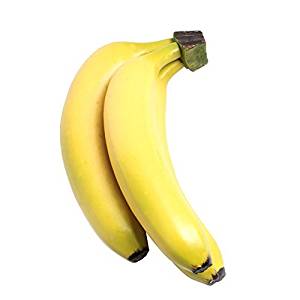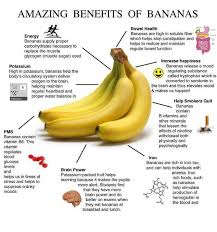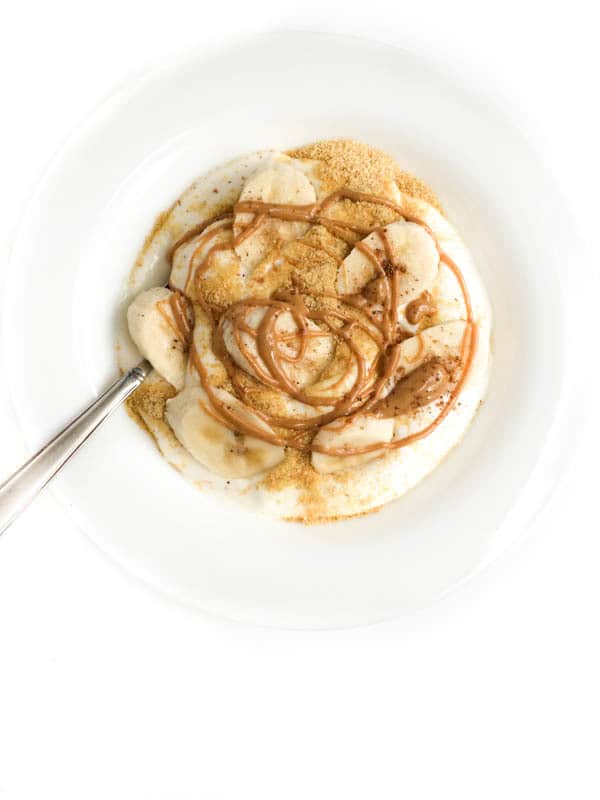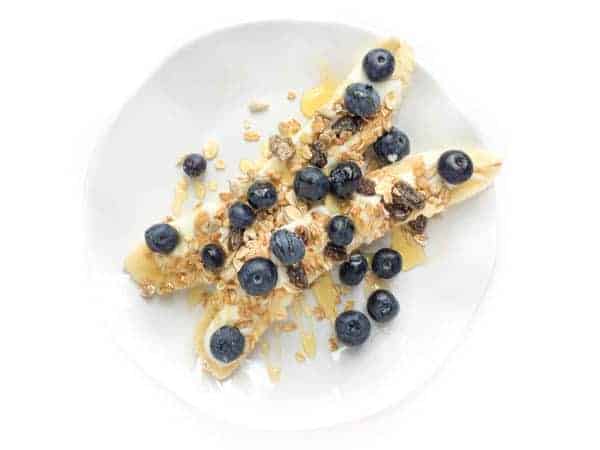Banana


Bananas are a healthy source of fiber, potassium, vitamin B6, vitamin C, and various antioxidants and phytonutrients.
...
Nutrition facts
- Calories: 89.
- Water: 75%
- Protein: 1.1 grams.
- Carbs: 22.8 grams.
- Sugar: 12.2 grams.
- Fiber: 2.6 grams.
- Fat: 0.3 grams.
Bananas are among the most important food crops on the planet.
They come from a family of plants called Musa that are native to Southeast Asia and grown in many of the warmer areas of the world.
Bananas are a healthy source of fiber, potassium, vitamin B6, vitamin C, and various antioxidants and phytonutrients.
Many types and sizes exist. Their color usually ranges from green to yellow, but some varieties are red.
This article tells you everything you need to know about bananas.
 Share on Pinterest
Share on PinterestNutrition facts
The nutrition facts for 1 medium-sized banana (100 grams) are (1Trusted Source):
- Calories: 89
- Water: 75%
- Protein: 1.1 grams
- Carbs: 22.8 grams
- Sugar: 12.2 grams
- Fiber: 2.6 grams
- Fat: 0.3 grams
Carbs
Bananas are a rich source of carbs, which occur mainly as starch in unripe bananas and sugars in ripe bananas.
The carb composition of bananas changes drastically during ripening.
The main component of unripe bananas is starch. Green bananas contain up to 80% starch measured in dry weight.
During ripening, the starch is converted into sugars and ends up being less than 1% when the banana is fully ripe (2).
The most common types of sugar in ripe bananas are sucrose, fructose, and glucose. In ripe bananas, the total sugar content can reach more than 16% of the fresh weight (2).
Bananas have a relatively low glycemic index (GI) of 42–58, depending on their ripeness. The GI is a measure of how quickly carbs in food enter your bloodstream and raise blood sugar (3).
Bananas’ high content of resistant starch and fiber explains their low GI.
Fibers
A high proportion of the starch in unripe bananas is resistant starch, which passes through your gut undigested.
In your large intestine, this starch is fermented by bacteria to form butyrate, a short-chain fatty acid that appears to have beneficial effects on gut health (4Trusted Source).
Bananas are also a good source of other types of fiber, such as pectin. Some of the pectin in bananas is water-soluble.
When bananas ripen, the proportion of water-soluble pectin increases, which is one of the main reasons why bananas turn soft as they age (5).
Both pectin and resistant starch moderate the rise in blood sugar after a meal.
SUMMARYBananas are mainly composed of carbs. Unripe bananas may contain decent amounts of resistant starch, which functions like fiber, aiding your gut and promoting healthy blood sugar levels.
This is because the human body either does not produce enough of them, or it does not produce any at all.
Each organism has different vitamin requirements. For example, humans need to consume vitamin C, or ascorbic acid, but dogs do not. Dogs can produce, or synthesize, enough vitamin C for their own needs, but humans cannot.
Peanut Butter Banana Greek Yogurt Bowl

Ingredients
- 4 cups vanilla Greek yogurt
- 2 medium bananas sliced
- 1/4 cup creamy natural peanut butter
- 1/4 cup flax seed meal
- 1 teaspoon nutmeg
Instructions
Divide yogurt between four bowls and top with banana slices.
Melt peanut butter in a microwave safe bowl for 30-40 seconds and drizzle one tablespoon on each bowl on top of the bananas.
Sprinkle with flax seed meal and ground nutmeg to serve.
Nutrition Information:
Calories: 370kcal | Carbohydrates: 47.7g | Protein: 22.7g | Fat: 10.6g | Saturated Fat: 2.2g | Polyunsaturated Fat: 8.4g | Cholesterol: 10mg | Sodium: 146mg | Fiber: 4.7g | Sugar: 35.8g
Why not add Blueberries?
